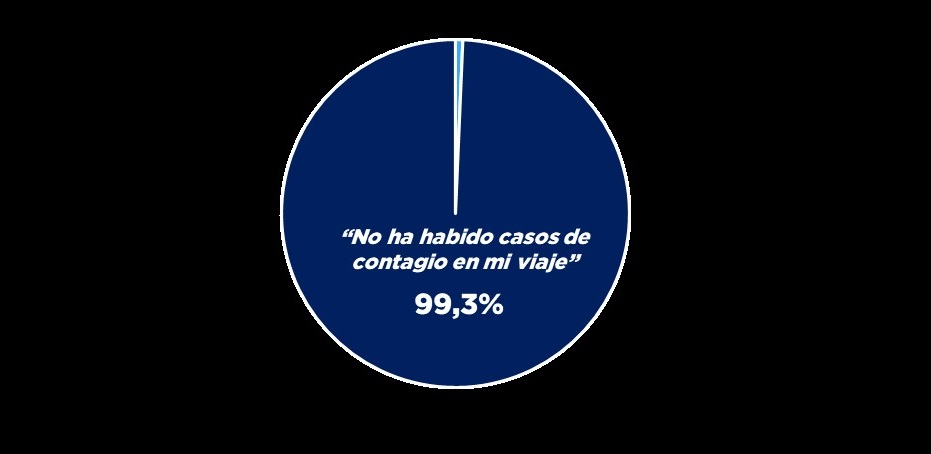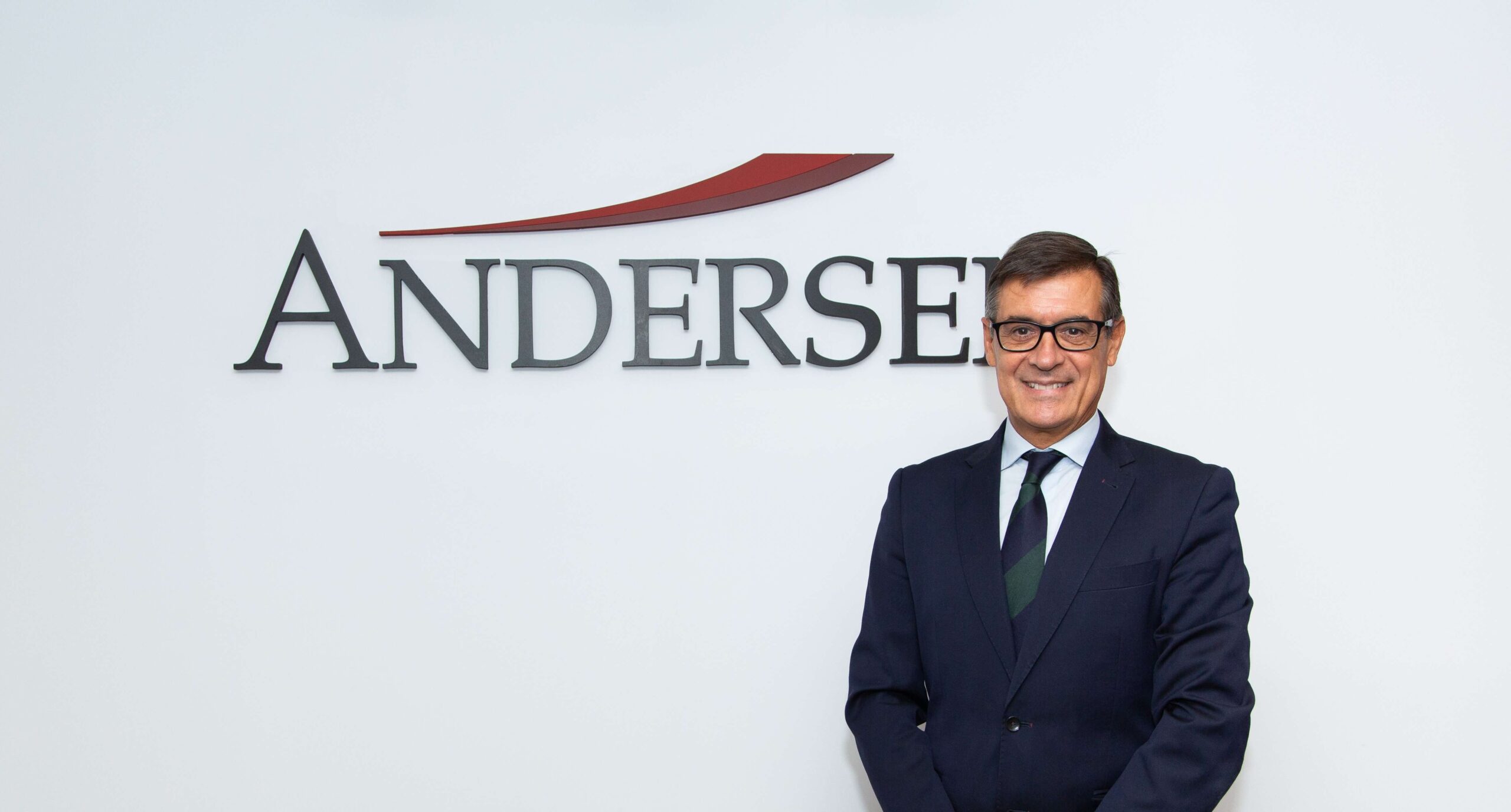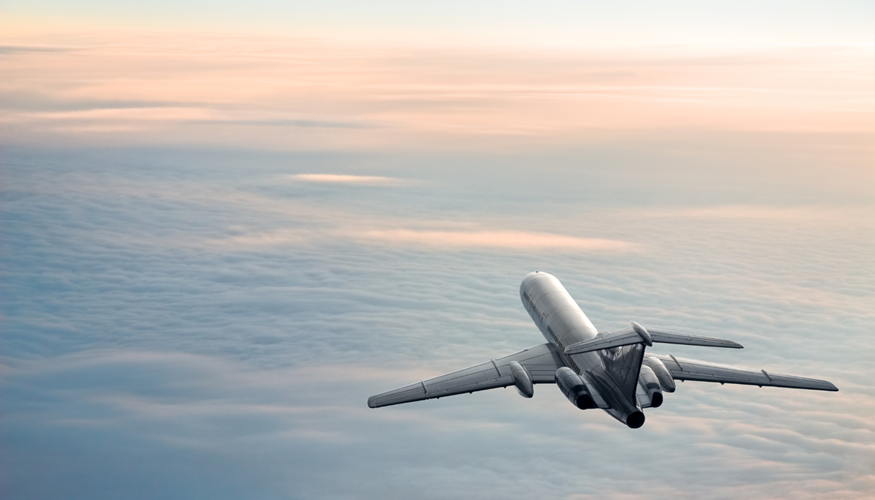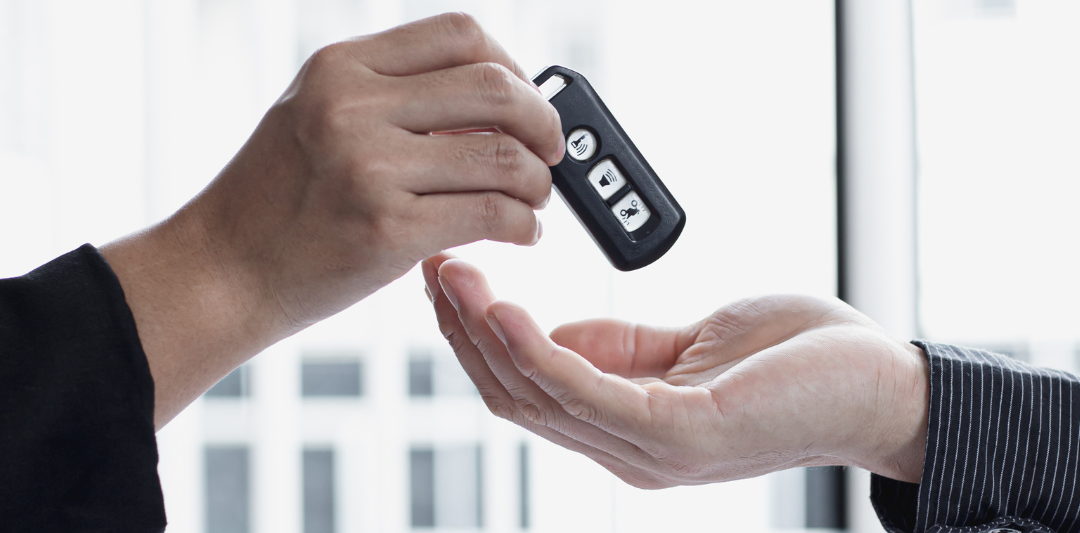A pesar del mensaje que ha perseguido al sector turístico en cuanto al peligro de contagio a la hora de viajar, lo cierto es que el verano nos ha dejado cifras que invitan al optimismo. BRAINTRUST ha llevado a cabo una nueva oleada de su Barómetro Turístico gracias a la cual contamos con una fotografía de cómo han pasado las comunidades autónomas el examen en seguridad sanitaria y qué medidas relacionadas con el COVID-19 son clave para brindar al turista esta seguridad que tanto necesita en la actualidad.
Viajar es más seguro de lo previsto al inicio de la crisis sanitaria
Según las cifras al comienzo de la pandemia provocada por el COVID-19, los españoles veían más probable, tras el confinamiento, retomar actividades como salir de copas (34,6% a corto plazo) e ir a restaurantes (47,0%) frente a coger aviones (18,6%) o alojarse en hoteles (24,5%).
Si bien los datos reflejaban cierto miedo a los movimientos relacionados con los viajes, el verano ha puesto a prueba el riesgo al contagio en los desplazamientos y el resultado es muy positivo ya que según el análisis incluido en el Barómetro Turístico de BRAINTRUST, tan solo un 0,7% de los viajeros han tenido algún contagio en su viaje, tanto del propio viajero como entre sus acompañantes. Por tanto, el mensaje que nos deja el verano es que viajar no es mucho más peligroso en este sentido que quedarse en el lugar de residencia.
Según Ángel García Butragueño, co-director del Barómetro Turístico BRAINTRUST y responsable de Turismo y Ocio: “Es clave transmitir los mensajes que nos dejan los datos y que ayudan al turista a tomar las mejores decisiones. Nos va a tocar convivir con el COVID-19 durante un tiempo, pero en España contamos con un sector turístico muy preparado para recibir a los viajeros y hacerles sentir casi tan seguros como en casa mientras siguen disfrutando de sus escapadas y viajes. A día de hoy es casi tan importante o más que las empresas turísticas o los propios destinos trabajen más la comunicación didáctica sobre la seguridad que sobre el propio producto, para reactivar la demanda”.
Buena nota en seguridad dentro de los destinos nacionales
Los españoles han decidido en su mayoría, quedarse dentro de las fronteras para disfrutar de sus vacaciones de verano (89,3%) mientras que pocos se han animado a desplazarse por Europa (10,0%) y de manera muy residual lo han hecho por el resto del mundo (0,8%).
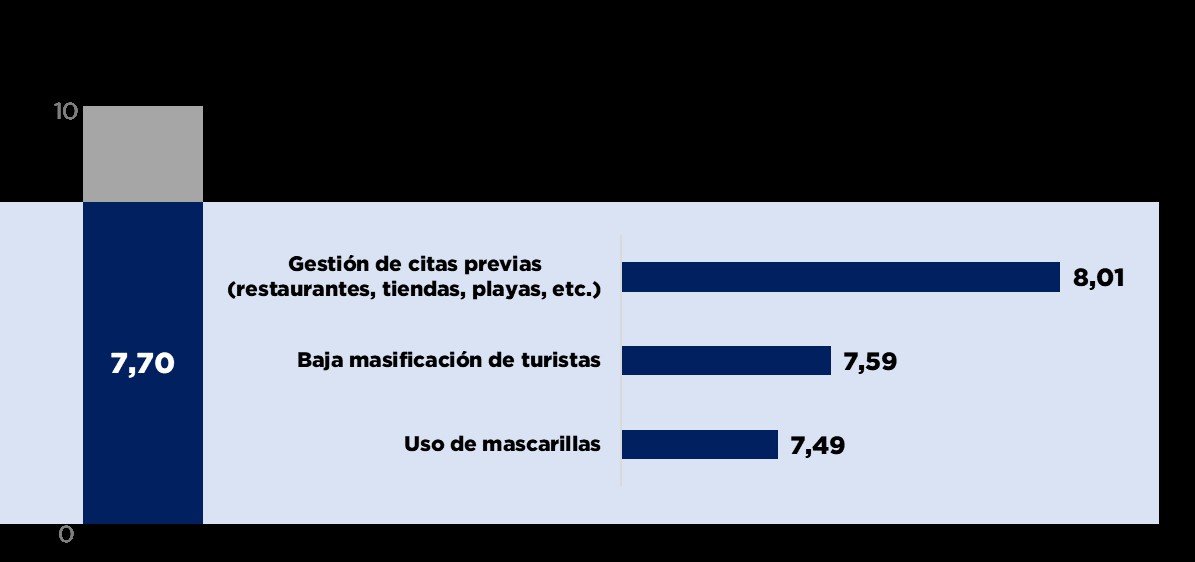
Los destinos nacionales, que además de por las causas de restricciones en viajes a otros países, se han elegido en muchos casos por cercanía, por permitir acceder en coche propio o por un mayor ajuste de presupuesto ante la incertidumbre de la crisis económica, han ofrecido además al viajero un alto nivel de seguridad sanitaria que ellos mismos han calificado con un 7,70 según los datos de BRAINTRUST. Por comunidades, encontramos la mejor valoración en Asturias (7,97), Andalucía (7,93), y Cataluña (7,77).
Tres factores clave resumen qué es la seguridad para el viajero
Según los viajeros, existen tres factores clave a la hora de sentir que un destino les brinda la seguridad sanitaria que en la actualidad tanto se busca.
En primer lugar, la buena gestión de las citas previas en tiendas, restaurantes y playas, que impide aglomeraciones y tiempos de espera innecesarios es uno de los factores que más ayudan a percibir un nivel alto de seguridad para la salud. Los turistas españoles han valorado con un 8,01 esta gestión de citas previas en los destinos que han visitado durante sus vacaciones. Por territorio, Castilla y León (8,13), es quien mejor ha actuado en este sentido, junto con Andalucía, Asturias y Galicia (8,00).
También, y como cabría esperar, el uso de mascarillas por parte de otros turistas en el destino influye de manera importante en la seguridad sanitaria que se percibe frente a posibles contagios. Aquellos que han viajado por España durante las vacaciones, valoran con un 7,49 el buen uso de la mascarilla, siendo Cataluña (8,00) y Galicia (7,91) los territorios donde más se ha respetado esta restricción según los turistas que les visitaron.
Por último, el nivel de saturación turística es otro factor de peso dentro seguridad sanitaria. Los españoles valoran con un 7,59 su experiencia con el nivel de masificación que han vivido en las zonas que han visitado. Ha sido principalmente en Galicia (7,87) donde menos aglomeraciones han existido, seguida de Andalucía (7,74) y Castilla y León (7,69).
Para José Manuel Brell, co-director del Barómetro Turístico BRAINTRUST y Socio responsable de estudios y modelos cuantitativos: “Vivimos tiempos en los que adaptarse al consumidor y cubrir sus necesidades se ha convertido en la máxima para sobrevivir a la crisis que nos ha traído la pandemia. Ahora mismo el riesgo al contagio es uno de los mayores miedos del turista, pero contamos con los medios y los conocimientos para paliar este temor y aún quedan muchos viajeros que encontrando esta seguridad que buscan tienen intención de seguir viajando a corto y medio plazo”.



